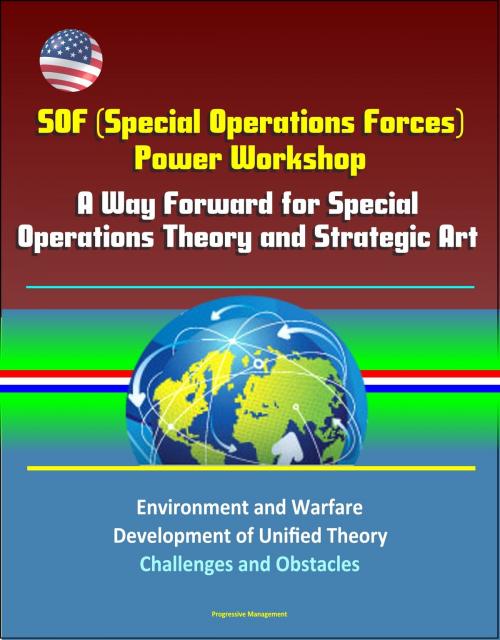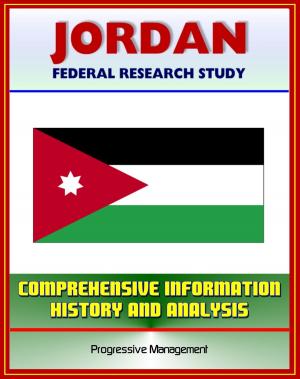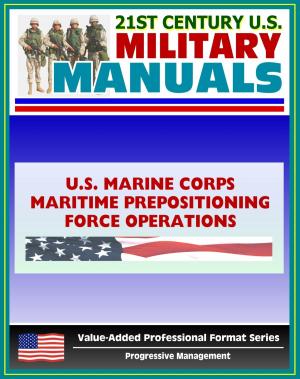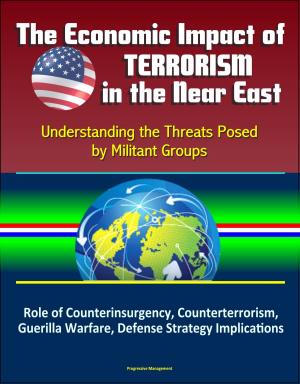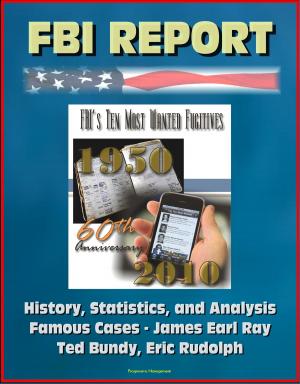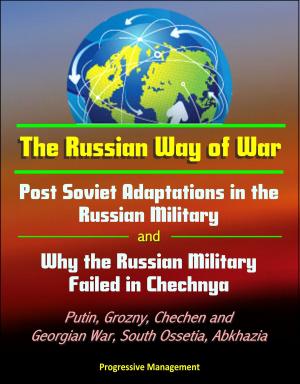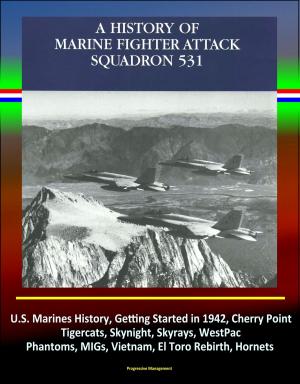SOF (Special Operations Forces) Power Workshop: A Way Forward for Special Operations Theory and Strategic Art - Environment and Warfare, Development of Unified Theory, Challenges and Obstacles
Nonfiction, History, Military, United States| Author: | Progressive Management | ISBN: | 9781370801459 |
| Publisher: | Progressive Management | Publication: | August 30, 2016 |
| Imprint: | Smashwords Edition | Language: | English |
| Author: | Progressive Management |
| ISBN: | 9781370801459 |
| Publisher: | Progressive Management |
| Publication: | August 30, 2016 |
| Imprint: | Smashwords Edition |
| Language: | English |
This excellent report has been professionally converted for accurate flowing-text e-book format reproduction. Modern military Special Operations arguably started with the Office of Strategic Services (OSS) in World War II and have maintained strategic utility for almost 70 years. The War on Terror, the Iraq War, and Afghanistan operations reinforced SOF's strategic utility in the 21st century, so much so, that in the last decade, the Special Operations Forces (SOF) structure has been limited more by the availability of qualified personnel than either mission requirements or funding. Regardless of the strategic history of modern SOF, research, thinking, and publication largely focus on Special Operations tactics and operational-level planning. Strategic-level thinking about military Special Operations is yet to be adequately developed. In order to bridge this gap, the Joint Special Operations University (JSOU) Strategic Studies Department convened a SOF-Power Workshop in August 2011 to examine the role of military Special Operations (SOF-Power) in national security and the relevance and feasibility of a theory of Special Operations to inform and guide the development and use of Special Operations and SOF. Eleven participants from various SOF and relevant academic backgrounds participated: the SOF Chairs from PME institutions, Senior Fellows from the JSOU Strategic Studies Department, and others from non-military institutions with an interest in SOF strategic utility. In a relatively short time this group critically examined the role of military Special Operations in the 21st century and validated SOF-Power's continued strategic utility. From this foundation, the work group concluded the need for a unified theory of Special Operations as a foundational document for the pursuit of education and strategic art within the SOF community, and the greater military and political communities. This report documents the work group's insights and conclusions and provides recommendations for a way forward in broadening the strategic art in regard to SOF-Power.
Executive Summary * Section I - Introduction * Section II - Methodology * Section III - Background * Section IV - Framing the Requirement * Section V - Toward a Military Theory of Special Operations * Section VI - Challenges and Way Ahead * Section VII - Recommendations and Conclusion * Appendix A: SOF-Power Workshop Recommendations * Appendix B: Recommended Subjects for SOF Strategic Art Curriculum * Appendix C: SOF Strategic Art Textbook Recommendations * Appendix D: SOF-Power Workshop Participants and Contributors * Appendix E: Workshop Agenda * Appendix F: References and Strategic Art Reading List
This excellent report has been professionally converted for accurate flowing-text e-book format reproduction. Modern military Special Operations arguably started with the Office of Strategic Services (OSS) in World War II and have maintained strategic utility for almost 70 years. The War on Terror, the Iraq War, and Afghanistan operations reinforced SOF's strategic utility in the 21st century, so much so, that in the last decade, the Special Operations Forces (SOF) structure has been limited more by the availability of qualified personnel than either mission requirements or funding. Regardless of the strategic history of modern SOF, research, thinking, and publication largely focus on Special Operations tactics and operational-level planning. Strategic-level thinking about military Special Operations is yet to be adequately developed. In order to bridge this gap, the Joint Special Operations University (JSOU) Strategic Studies Department convened a SOF-Power Workshop in August 2011 to examine the role of military Special Operations (SOF-Power) in national security and the relevance and feasibility of a theory of Special Operations to inform and guide the development and use of Special Operations and SOF. Eleven participants from various SOF and relevant academic backgrounds participated: the SOF Chairs from PME institutions, Senior Fellows from the JSOU Strategic Studies Department, and others from non-military institutions with an interest in SOF strategic utility. In a relatively short time this group critically examined the role of military Special Operations in the 21st century and validated SOF-Power's continued strategic utility. From this foundation, the work group concluded the need for a unified theory of Special Operations as a foundational document for the pursuit of education and strategic art within the SOF community, and the greater military and political communities. This report documents the work group's insights and conclusions and provides recommendations for a way forward in broadening the strategic art in regard to SOF-Power.
Executive Summary * Section I - Introduction * Section II - Methodology * Section III - Background * Section IV - Framing the Requirement * Section V - Toward a Military Theory of Special Operations * Section VI - Challenges and Way Ahead * Section VII - Recommendations and Conclusion * Appendix A: SOF-Power Workshop Recommendations * Appendix B: Recommended Subjects for SOF Strategic Art Curriculum * Appendix C: SOF Strategic Art Textbook Recommendations * Appendix D: SOF-Power Workshop Participants and Contributors * Appendix E: Workshop Agenda * Appendix F: References and Strategic Art Reading List
